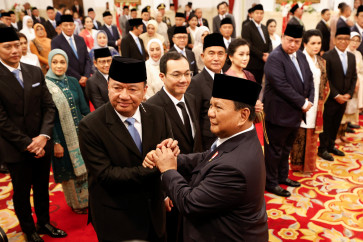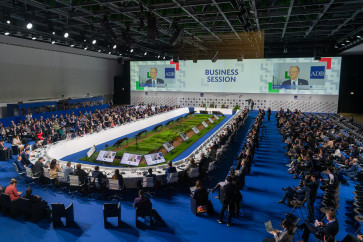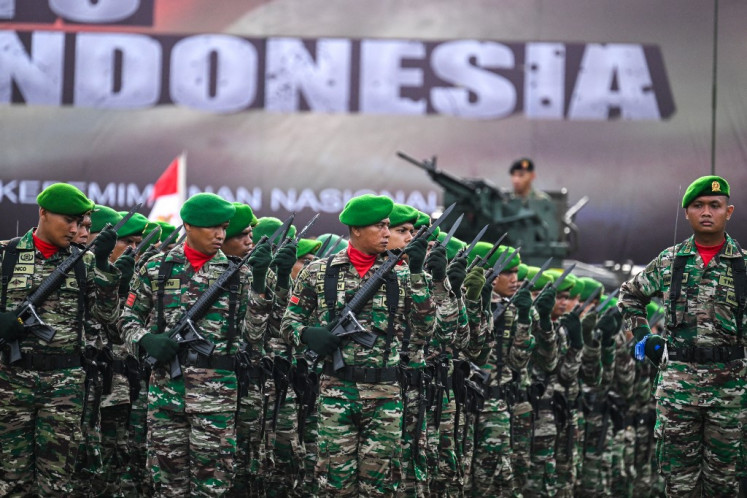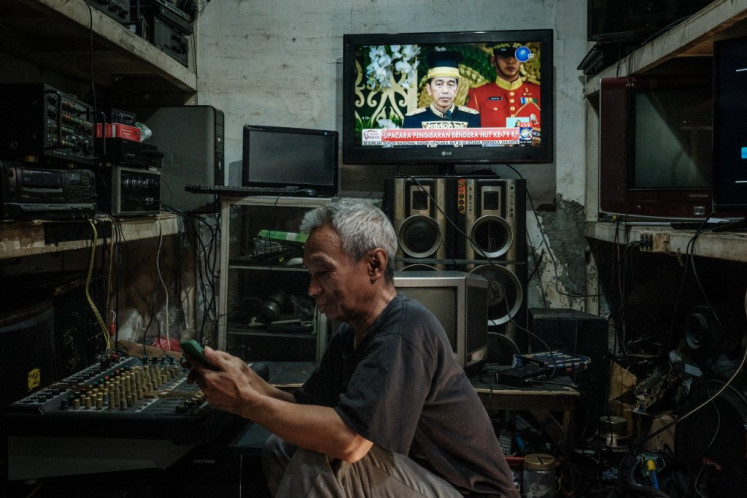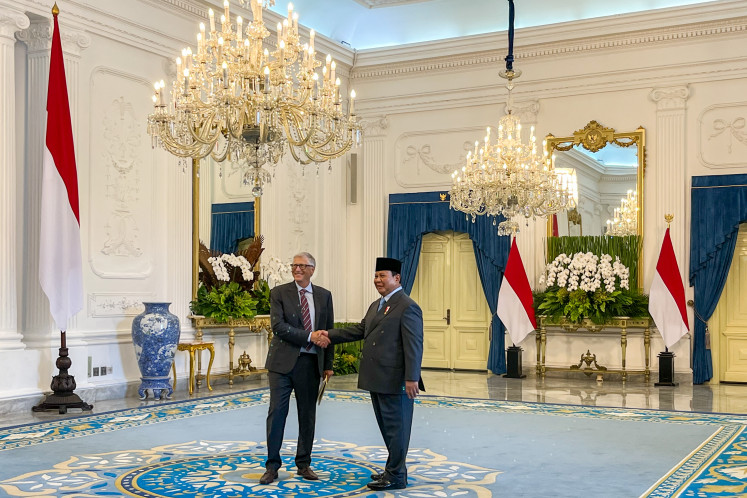Patent Law and transfer of technology
One year ago, the Indonesian government implemented Law No
Change text size
Gift Premium Articles
to Anyone

O
ne year ago, the Indonesian government implemented Law No. 13 of 2016 concerning patents to replace Law No. 14 of 2001 on the same subject. The new patent law focuses on the regulation of how Indonesia can be more effective in implementing intra-Indonesian technology transfer activities.
Currently, Indonesia is a country that has not optimally encouraged the development of technology, specifically the improvement in the mastery and utilization of technology. This in turn has weakened Indonesia’s competitiveness.
This can be seen from the 2017 Global Innovation Index report. Indonesia’s innovation ranking is 87th out of 127 countries. In the ASEAN region alone, Indonesia’s position is far below Malaysia’s at 37th and Vietnam at 47th.
Based on the Global Competitiveness Index data from the 2016-2017 World Economic Forum, Indonesia ranked 41st overall out of 138 countries, in the innovation pillar Indonesia ranked 31st, in the innovation capacity sub-pillar Indonesia ranked 32nd, while in the high-tech government spending sub-pillar Indonesia ranked 12th, and Indonesia’s rank for the international patent sub-pillar was 99th.
The data above is not an encouraging sign of the development of Indonesian technology. One of the causes for concern is the fact that the transfer of technology policy in Indonesia has not been real and progressive.
Some policies have been used as a legal basis to encourage transfers of technology, such as Article 10 (4) of the Investment Law, which states: “Investment companies employing foreign workers are required […] and transfer of technology to Indonesian citizens [….]” Furthermore, Article 16 (1) of the Law on the National System of Research, Development and Application of Science and Technology states: Universities and R&D […] the transfer of intellectual property technology […] funded by the government and/or local governments.
Looking at these two policies, the government has actually shown a “political will” to require the implementation of transfer of technology in order to encourage the parties to master the technology either from abroad or in-country.
However, those transfer of technology policies have two apparent weaknesses. First, the notion of technology in transfer of technology tends to have an unclear meaning and seems to be overly broad.
The meaning of technology can be interpreted as obsolete technology, current or for a certain period of time. Suppose that the meaning of technology is interpreted as obsolete technology, it thus would be very detrimental to the national interests of Indonesia.
The Indonesian nation, therefore, will not be able to realize its potential for competitiveness through the role of technology.
Secondly, although these transfer of technology policies provide legal obligations, it turns out that such obligations are not backed up by enforcement measures, rendering them “toothless tigers.”
This has likely created an environment where implementation of transfer of technology policies are not taken seriously by the parties who developed the technology in Indonesia.
Recognizing that transfer of technology policy in Indonesia has not been able to encourage the process of control and use of technology, the government created a solution in 2016. Articles 20 and 132 in the new Patent Law indicate a very progressive solution in the realization process of transfer of technology.
Article 20 states: “(1) The patent holder is obligated to manufacture the product or use the process in Indonesia;” “(2) Manufacturing the product or using the process […] shall support the transfer of technology […].” Meanwhile, Article 132 (1) (e) and (4) state: “(1) The abolition of a patent based on a court decision […] is performed if: [...] e. the patent holder violates the provisions referred to in Article 20;” “(4) […] a lawsuit for deletion as […] letter d and e may be filed by a prosecutor or other party representing the national interest […] shall be obliged to the Commercial Court.”
Based on the provisions of Article 20 and 132, the government’s commitment and willingness for the transfer of technology in Indonesia have been expressed very strongly and progressively. This commitment is illustrated by these legal provisions going beyond merely encouraging transfer of technology, and actually coercing compliance through the threat of sanctions to parties who otherwise would have no political will to transfer their technology.
The sanction imposed is not half-hearted. The removal of the patent itself as a form of control over the exclusivity of the invention held by the patent holder should provide the impetus for following the law.
The government’s push for transfer of technology through adoption of its policy in Article 20 and 132 is groundbreaking and accordingly has not been welcomed by everyone. Foreign investors holding patents see the new law as counterproductive or an obstacle to their investment.
Facing persistent foreign pressure concerning the provisions of Article 20 and 132, the government seems to be experiencing a “chaos” of commitment.
This disorder can be seen in the government’s response to the foreign pressure at the beginning, by planning the drafting of Government Regulation.
However, over time, the focus has shifted into a plan to amend Articles 20 and 132.
The government’s attitude as explained above seems to be very apprehensive. The government indeed should have independence in policy-making. Nevertheless, it has been shaken by the insistence of foreign parties because it is considered to inhibit their investment.
Supposedly, if the government is objective, then before making amendments to Articles 20 and 132, it is appropriate to do two things: Firstly, the government must have objective and valid data related to transfer of technology in Indonesia.
This data may be requested by the government from parties considered to be leaders in their technology sector, especially with foreign parties; and secondly, the government should be able to request a transfer of technology from technology leaders who can promote the competitiveness of the Indonesian nation.
___________________________
The writer is the director of the Intellectual Property Rights Center, Faculty of Law at the Islamic University of Indonesia (UII). The views expressed are his own.


